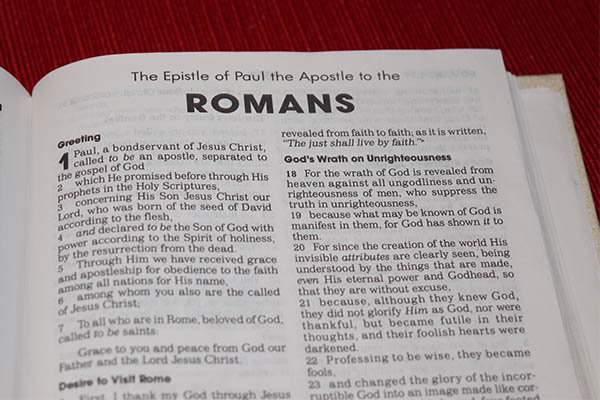Bible Studies for Life By Jeffery M. Leonard, Ph.D.
Assistant Professor of Religion, Samford University
One Great Savior
Romans 5:6–11
On a particular plot of ground on the Florida coast lies a plaque emblazoned with the following words: “ad astra per aspera,” which means “a rough road leads to the stars.” This plaque marks the site of one of the worst accidents in the history of manned space flight. One month shy of their planned launch date in 1967 the astronauts of the Apollo I mission perished in a devastating cabin fire at Cape Kennedy. Set to take the next step in humanity’s attempt to reach the moon, three men — Virgil Grissom, Edward White and Roger Chaffee — instead became victims of a terrible training accident. And yet, despite the deaths of these three astronauts, the space program continued pushing forward, charging ahead despite incredible risks and reaching the moon just two years later.
Planted deep within the human heart is an irrepressible spirit of adventure and exploration that longs to break out. We are drawn almost irresistibly to venture out into the unknown, to push forward into the mysterious. Faced with the challenge of reaching new heights, pushing our boundaries, stretching beyond our limits, we muster the courage and endurance to face and overcome almost any difficulty.
But even the most battle-hardened soul can reach a point where endurance begins to fail. When we push long enough and hard enough, our strength begins to give out. What is true of our physical limits is equally true of our souls. At times, a walk of faith feels more like a grinding slog up seemingly endless peaks. Our spiritual legs feel they are about to give out. Our souls are buffeted by one blow after another. And we reach a point where we worry we might just give up altogether.
In Romans 5 the apostle Paul reaches out to a group in just this situation, offering his readers these words of encouragement: “We boast in our sufferings, knowing that suffering produces endurance and endurance produces character and character produces hope” (vv. 3–4).
Jesus died for us. (6–8)
The ultimate source of Paul’s confidence is his conviction that in every situation, no matter how difficult, God’s love continues to reach out to His people.
Why? Because God had already proved His love. When He let His son die on the cross, He demonstrated once and for all the heights and depths of His great love for humanity. Paul knew God loved humanity because he was convinced God’s Son had died for humanity.
Jesus saves us. (9)
But Paul’s theological reasoning moves beyond the mere fact that Jesus had died for humanity. Paul knew Jesus’ death for His people had profound implications for the relationship between God and humanity. The Father’s acceptance of Jesus’ death on the cross was the most vivid symbol he could give that the wrath that once separated God and humanity had now been removed. Through Jesus’ death, Paul knew we had been spared from God’s wrath.
Jesus reconciles us to God. (10–11)
Going one step further, though, Paul offers a message much more hopeful than just the removal of the specter of God’s wrath hanging over us. Paul goes on to say Jesus’ death has fully reconciled us to God. To be sure, we are no longer God’s enemies. But the real message of hope is that we are now God’s friends. Christ died for us. Through His death, God demonstrated His love for us. And now He has brought us once more into His loving embrace as His very own sons and daughters. We press on, renewing our endurance, because we know the love God has for us.




Share with others: